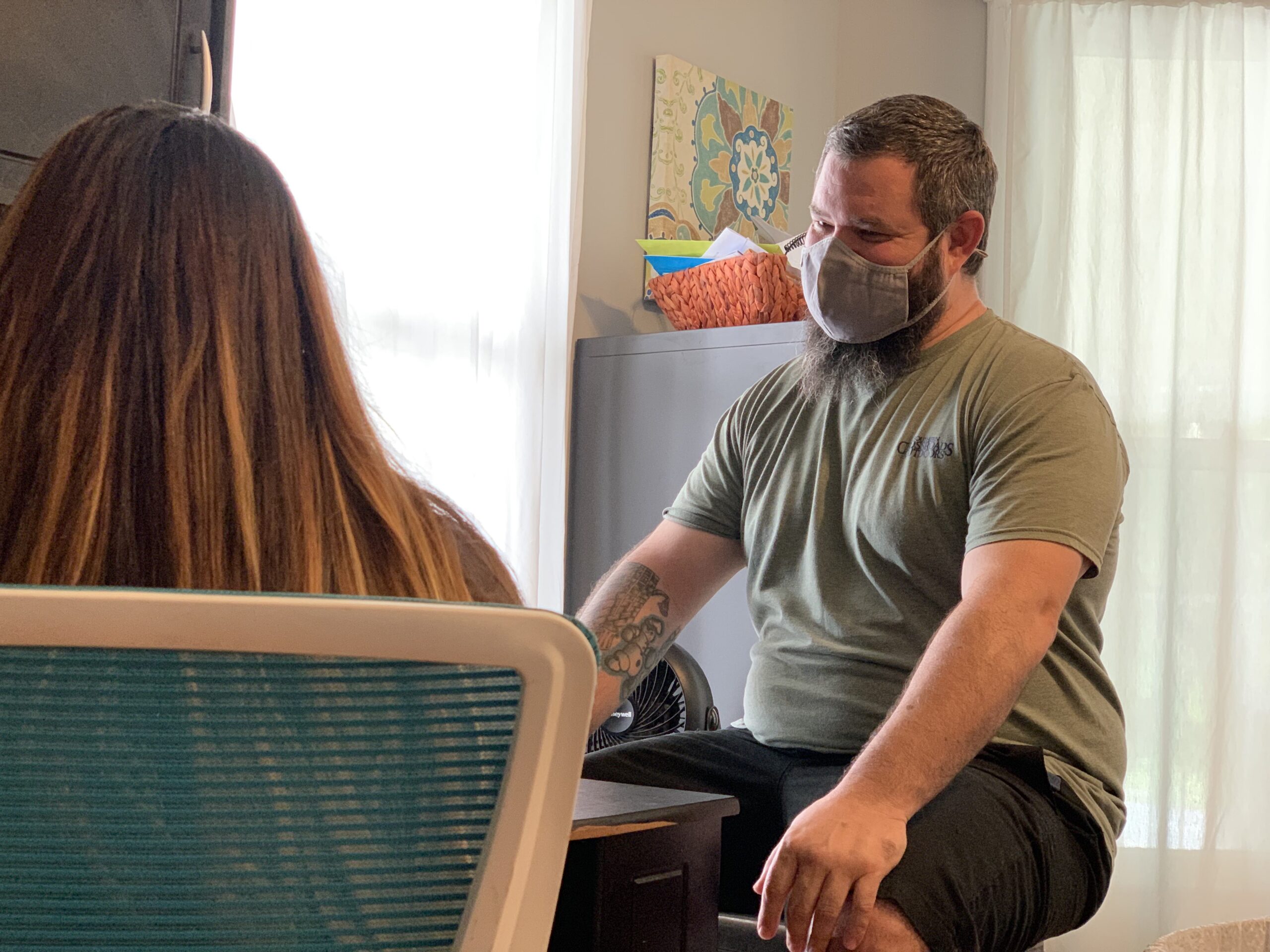Alex Callahan is the Lead Case Manager for The Davies Shelters. He meets with each guest multiple times a month and partners with them in creating a case plan and moving them towards independent living. He connects our guests with community partners to ensure they have all the support they need during and after their stay at The Shelter. Alex holds a Bachelor’s degree in Psychology from the University of West Georgia, and will complete his Masters in Psychology in December.
In helping relationships, it is widely recognized that meeting each person in the place where they are is a necessary part of being a helper. It is my opinion that this posture of acceptance is an ongoing, dynamic process that occurs throughout the span of the relationship. If I can facilitate a non-judgemental and congruent (in other words, authentic) environment, our guests will naturally begin to reveal more and conceal less of themselves to me. When this is true, we are able to know one another and prize one another for both our similarities, as well as our differences.
During these meetings, I’m listening for a number of things most notably:
- where they have been,
- how their journey has been up until now,
- and what their expectations are for the future.
I am also listening key markers of resilience:
- “I Am” (self-image/self-esteem)
- “I Can” (self-efficacy)
- “I Have” (available resources/supports)
I am interested in helping to foster those areas where the guests seem strong and facilitating growth in those that seem deficient.
My approach to case management tends toward being “non-directive.” I find that giving too many directions builds a reliance on the case manager, at the expense of the person developing and or strengthening their own internal compass – ultimately increasing the recidivism rate. This doesn’t mean I don’t offer direction, but I only try to do so when I feel it is necessary. As often as possible, I want to build a “scaffold” under the guest so they can grow in whichever direction they choose. This may sound odd, but I think my job as a case manager is to try to be simultaneously helpful and completely unnecessary for each guest. On one hand, I never want to do something for someone who can easily do it for themselves. On another hand, I don’t want to allow someone’s progress to stall because they don’t know “Y” or are unable to figure out how “X” or are having difficulty navigating “Z” system.

